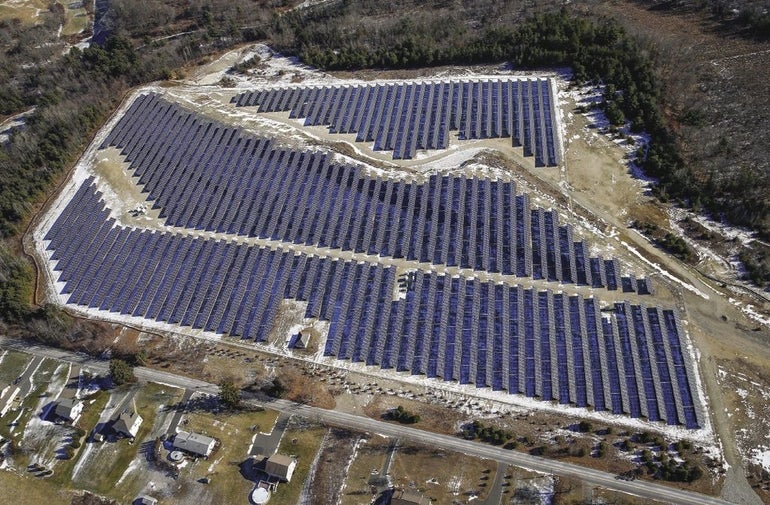While controlling costs is a goal of energy legislation marked for debate in the House on Wednesday, the bill includes language allowing utilities to recoup from ratepayers some of the costs associated with bringing more renewable energy sources into their distribution networks.
The language, added to the bill this week by the House Ways and Means Committee, authorizes energy distribution companies to issue a “remuneration” charge, capped at 2.75 percent and regulated by the state Department of Public Utilities.
“The proposed legislation contains a provision, consistent with previous energy policy, that allows utilities to recoup debt costs associated with statutorily required procurements,” Chris Bennett, spokesman for the Ways and Means Committee, told the News Service. “Those costs are capped at no more than 2.75 percent at the discretion of DPU. For example based on the case presented by the utility, DPU could choose to allow them to recoup a figure less than the 2.75 percent cap or even zero.”
Potential costs would vary based on the specific details of a project, including whether it requires construction of new transmission infrastructure, according to Bennett.
The addition to the energy bill, which aims to use long-term contracts to draw more power into the grid from offshore wind and hydro sources, requires the DPU and the Department of Energy Resources to adopt remuneration charge regulations “to compensate the company for accepting the financial obligation of the long-term contract.”
Ways and Means added the remuneration language “to maintain consistency in the state’s long term energy contracting practices and to not destabilize the marketplace,” Bennett said.
Remuneration for utility companies has precedent. It is allowed at 4 percent in the Green Communities Act, at 2.75 percent in the 2012 Competitively Priced Electricity Act, and remuneration for required infrastructure repairs as stipulated in the gas leaks repair law of 2014 is set at 1.5 percent.
The Environmental League of Massachusetts said remuneration is commonly included in long-term contracts, but “is not necessary” in the hydro sector, where utilities often have sister companies that make money on the transmission of the energy.
“Those provisions allow utilities who don’t make money normally on generation to keep a certain percentage of the value of that contract,” Josh Craft, ELM’s program director, said. “We think the value … at 2.75 percent is a bit high. The utilities’ transmission sister companies make money on transmission projects, so they don’t need a sweetener of that sort at that level.”
The House on Wednesday plans to debate its energy bill, which would require utility companies, subject to DPU approval, to competitively solicit and purchase a combined 2,400 megawatts of renewable hydro and offshore wind power through long-term contracts.
The bill (H 4377) represents the House’s attempt to procure new energy sources and reduce carbon emissions as more than 10,000 megawatts of reliable power from fossil fuel plants and Pilgrim Nuclear Power Station are due to come offline in the coming years.
The bill directs utilities by next January to solicit contracts of between 15 to 20 years for the purchase of 1,200 megawatts of delivered hydropower. By July 2017, utilities would be required to solicit similar contracts for an additional 1,200 megawatts of “nameplate capacity” offshore wind.

